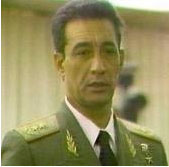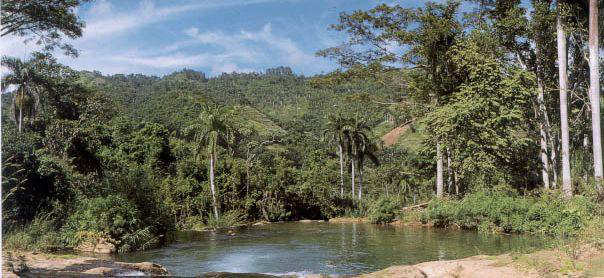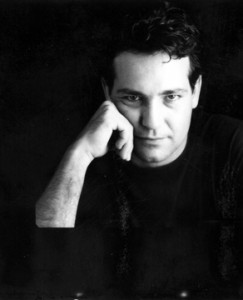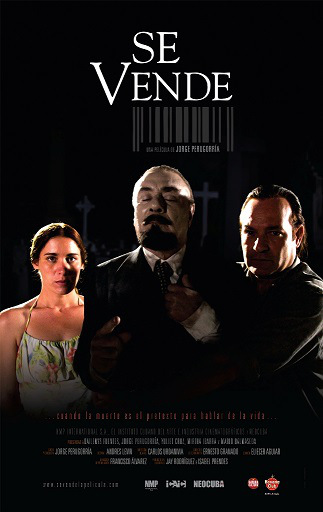The most intriguing and reliable revelations against the Cuban Government has come to light from Florentino Aspillaga Lombard, the most knowledgeable and valuable foreign intelligence officer to ever defect from Cuba’s powerful Directorio General de Inteligencia (DGI).
On June 6, 1987, the diplomatic car of Cuban intelligence officer Florentino Aspillaga Lombard, “Tino”, 40, head of the intelligence center at the Cuban Embassy in Prague, Czechoslovakia crossed the border between Czechoslovakia and Austria to go to the American Embassy in Vienna. After nine days he was in Washington for the better debriefing with the CIA.
Aspillaga revealed to the CIA one of Havana’s most closely held secrets – almost every Cuban agent the CIA had recruited since 1961 was actually controlled by Cuban Intelligence. Aspillaga told the CIA he knew this as he had previously worked for the element that targeted CIA operations in Cuba.
According to media accounts, Aspillaga claimed that Havana had “turned” 38 of the CIA’s Cuban agents. He explained that the CIA assets had been “dangled” before the CIA by Havana or identified and “doubled back” after their recruitment by CIA case officers. Furthermore, this decades-long operation helped Cuba identify between 151 to 179 CIA officers. In sum, almost everything the CIA thought it knew about Cuba was well choreographed disinformation scripted by Havana. According to published accounts, 24 of these CIA officers were serving undercover in the US Interests Section in Havana when Aspillaga exposed Havana’s efforts. All were quickly withdrawn.
Aspillaga was station chief General Intelligence Directorate (DGI) in Prague, where he passed most of Castro illegal agents, especially to Latin America. No wonder Aspillaga announced that 350 would reveal the identities of undercover agents and even foreign governments gave explicit term for these companions returned safely to the island Aspillaga opened with interviews for Radio Martí (August 3 to 7, 1987), followed with the report “Spilled Beans, a Cuban defector bars secrets” (Time, August 24, 1987, page 17) and so the media trots out his crushing blow against Castro laid bare Aspillaga 38 CIA agents who were really Castro and Castro said in passing that he had detected 151 of 179 CIA agents involved in any way with the “Cuban problem ‘, including 24 assigned to the U.S. interests Section. UU. in Havana (SINA), who were transferred immediately.
Tino Aspillaga defected that fateful summer in 1987 in the midst of the turbulent and historic years of Soviet leader Mikhail Gorbachev’s Glasnost and Perestroika — but still four years before the total collapse of the Soviet empire. (Reagan with Gorbachev, photo right) Aspillaga had served with distinction in the elite ranks of the DGI and had even received a personal commendation from Fidel Castro.
After Aspillaga began working with the CIA, he immediately exposed dozens of Cuban double agents, who had infiltrated American intelligence, political and cultural institutions, as well as various anti-Castro groups. Many of these Cuban double agents had been operating for over two decades, inflicting untold damage on the U.S. The most highly placed double agents were handled personally by Fidel Castro, who, for nearly fifty years, acted as Cuba’s supreme spymaster!
Characteristically, Fidel Castro denounced Aspillaga and put a price on his head. Then Castro began a propaganda counterattack, authorizing the publication and distribution of a series of newspaper articles and well-done documentaries designed to taunt and humiliate the CIA over the magnitude of Cuba’s deception and to publicize the CIA’s calamitous counterintelligence failures. The full effect of the humiliation was only limited by breaking news of the Iran-Contra affair, which diverted the attention of the U.S. media. Nevertheless, it inflicted deep wounds to the morale of CIA officers.
There were two assassination attempts made against Aspillaga that are vividly recounted by Latell in this book. In both attempts, Fidel Castro utilized Aspillaga’s former best friends. One attempt was made in London in 1988 at point blank range. The other was a failed sniper attempt made by Miami-based, Red Avispa (“Wasp”) agents, many of who were arrested a year later by the FBI in September 1998.
Following Cuba’s year of the spy (1987), when six major defections took place including that of Aspillaga and the much-celebrated Cuban hero, General Rafael del Pino, Castro ordered a devastating purge of both the Cuban Interior Ministry and the island’s secret police. In Stalinist fashion, General Arnaldo Ochoa (photo, right), the most decorated Cuban general and hero of the African wars, and Antonio de la Guardia, an intrepid intelligence colonel, were shot following a kangaroo trial that convicted them of the trumped-up charges of drug trafficking. Jose Abrahantes, the long-time Cuban Minister of the Interior, was also arrested but died in custody, ostensibly of a heart attack. Most poignant and characteristic of Fidel’s vindictiveness is the story of Ochoa and Ulises Rosales. General Rosales, whose life had been saved by Ochoa during a guerrilla war in Venezuela, was forced to confront his former friend and vote for his execution.
Aspillaga’s defection was a crushing blow to Fidel personally and to Cuban foreign intelligence generally, even affecting internal G-2 operations. The head of Cuban counterintelligence in Havana committed suicide with a pistol shot through his mouth. But make no mistake about it, despite these losses, Cuban foreign intelligence remains probably to this day an agency without peer in the cloak and dagger, lethal game of human intelligence (HI) and counterintelligence (CI) in the world. And also in judging the CIA, we must remember that totalitarian police states have astronomical advantages over the foreign spy agencies of the free world that frequently go unnoticed. These advantages usually include a vast network of informants, where everyone is afraid of and snitches on everybody else; citizens have no constitutional or civil rights; national identity cards are mandated and required for travel (with concomitant restriction of movement for the foreign spies as well as the citizens); unlimited resources are available for the state spies and secret police, etc. Cuba had all of these advantages, as well as superior spycraft led by Fidel himself, a brilliant but evil spymaster with unlimited power, the supreme autocrat.
Aspillaga’s defection in 1987 and his revelations proved and subsequent investigations corroborated that the CIA had been outclassed and humbled by the Cuban DGI in spycraft. Although “the Americans had been careless, overconfident, deceived in ways that they thought unimaginable,” according to journalist Brian Latell, “none had been dishonest or disloyal.
Sources: Wiki/Latell/various/excerpts/internetphotos/www.thecubanhistory.com
CASTRO’S SECRETS: the Aspillaga Lombard Saga
The Cuban History, Arnoldo Varona, Editor
SECRETOS DE CASTRO: EL CASO DEL DESERTOR CUBANO ASPILLAGA LOMBARD.
Las revelaciones más interesantes y fiable contra el Gobierno de Cuba ha salido a la luz de Florentino Aspillaga Lombard, el oficial de inteligencia extranjera más eficiente y valioso para desertar siempre de gran alcance de Cuba Directorio General de Inteligencia (DGI).
El 6 de junio de 1987, el coche diplomático de oficial de inteligencia cubano Florentino Aspillaga Lombard, “Tino”, de 40 años, jefe del centro de inteligencia de la embajada de Cuba en Praga, Checoslovaquia, cruzó la frontera entre Checoslovaquia y Austria para ir a la Embajada de Estados Unidos en Viena. Después de nueve días que estuvo en Washington para mejor interrogatorio de la CIA.
Aspillaga reveló a la CIA uno de los secretos mantenidos más de cerca de la Habana – casi cada agente cubano de la CIA había reclutado desde 1961 fue controlada efectivamente por la Inteligencia cubana. Aspillaga le dijo a la CIA lo sabía ya que había trabajado anteriormente para el elemento que dirige las operaciones de la CIA en Cuba.
De acuerdo con informes de los medios, Aspillaga afirmó que La Habana había “convertido” 38 de agentes cubanos de la CIA. Explicó que los activos de la CIA habían sido “colgado” antes de que la CIA por La Habana o identificados y “doble vuelta”, después de su reclutamiento por agentes de la CIA. Además, esta operación hace décadas ayudó a Cuba a identificar entre 151 a 179 agentes de la CIA. En resumen, casi todo lo que la CIA pensaba que sabía acerca de Cuba fue bien coreografiado desinformación guión de La Habana. Según informes publicados, 24 de estos agentes de la CIA estaban cumpliendo encubierto en la Sección de Intereses de EE.UU. en La Habana cuando Aspillaga expone los esfuerzos de La Habana. Todos se retiraron rápidamente.
Aspillaga era jefe de estación Dirección General de Inteligencia (DGI) en Praga, donde pasó la mayor parte de los agentes ilegales de Castro, especialmente a América Latina. No es de extrañar Aspillaga anunció que 350 podría revelar las identidades de agentes encubiertos e incluso gobiernos extranjeros dio plazo explícito para estos compañeros regresaron sanos y salvos a la isla Aspillaga inició con entrevistas para Radio Martí (3 al 7 de agosto de 1987), seguido con el informe “Derramó Los frijoles, un desertor cubano bares secretos “(Tiempo, 24 de agosto de 1987, página 17) y por lo que los medios de comunicación trota hacia fuera su aplastante golpe contra Castro puso al descubierto ASPILLAGA 38 agentes de la CIA que estaban realmente Castro y Castro dijo de pasada que había detectado 151 de 179 agentes de la CIA implicados de alguna manera con el “problema cubano”, incluyendo 24 asignado a la Sección de Intereses de EE.UU.. UU. en La Habana (SINA), que fueron trasladados de inmediato.
Tino Aspillaga que desertó fatídico verano en 1987 en medio de los años turbulentos e históricos de Glasnost y Perestroika del líder soviético Mikhail Gorbachov – pero aún cuatro años antes del colapso total del imperio soviético. (Reagan a Gorbachov, foto de la derecha) Aspillaga había servido con distinción en la élite de la DGI y que incluso había recibido una recomendación personal de Fidel Castro.
Después Aspillaga comenzó a trabajar con la CIA, inmediatamente se expone decenas de dobles agentes cubanos que se habían infiltrado en la inteligencia estadounidense, las instituciones políticas y culturales, así como varios grupos anticastristas. Muchos de estos agentes dobles cubanos habían estado operando durante más de dos décadas, causando un daño incalculable en los EE.UU. Los agentes dobles más alto rango fueron manejados personalmente por Fidel Castro, quien, durante casi cincuenta años, actuó como supremo jefe de espías de Cuba!
Característicamente, Fidel Castro denunció Aspillaga y puso precio a su cabeza. Entonces Castro comenzó una contra propaganda, se autoriza a la publicación y distribución de una serie de artículos periodísticos y documentales bien hechos diseñadas para burlarse y humillar a la CIA sobre la magnitud del engaño de Cuba y dar a conocer los fallos de contrainteligencia calamitosos de la CIA. El efecto total de la humillación sólo estaba limitado por las últimas noticias del caso Irán-Contra, que desvía la atención de los medios de EE.UU.. No obstante, se infligió heridas profundas de la moral de funcionarios de la CIA.
Hubo dos intentos de asesinato en su contra Aspillaga que son vívidamente relatadas por Latell en este libro. En ambos intentos, Fidel Castro utilizó ex mejores amigos de Aspillaga. Una tentativa fue hecha en Londres en 1988 a quemarropa. El otro fue un intento fallido de francotirador hecho por con sede en Miami, los agentes de Red Avispa (“Wasp”), muchos de los cuales fueron detenidos un año después por el FBI en septiembre de 1998.
Después de años de Cuba del espía (1987), cuando seis grandes deserciones se produjeron entre ellos el de Aspillaga y el héroe cubano, muy celebrada, el general Rafael del Pino, Castro ordenó una purga devastador, tanto del Ministerio cubano del Interior y de la policía secreta de la isla. De manera estalinista, el general Arnaldo Ochoa (foto, derecha), el general cubano más condecorado y héroe de las guerras africanas, y Antonio de la Guardia, un coronel de inteligencia intrépido, fueron fusilados tras un juicio que los condenó canguro del inventados cargos de tráfico de drogas. José Abrahantes, el Ministro cubano de largo plazo del Interior, también fue arrestado, pero murió bajo custodia, al parecer de un ataque al corazón. Más conmovedora y característico de la venganza de Fidel es la historia de Ochoa y Ulises Rosales. General de Rosales, cuya vida había sido salvada por Ochoa durante una guerra de guerrillas en Venezuela, se vio obligado a enfrentarse a su antiguo amigo y votar por su ejecución.
La deserción de Aspillaga fue un golpe demoledor a Fidel personalmente y para la inteligencia exterior cubano en general, incluso afectando G-2 operaciones internas. El jefe de la contrainteligencia cubana en La Habana, se suicidó con una pistola disparó a través de la boca. Pero no nos equivoquemos al respecto, a pesar de estas pérdidas, la inteligencia exterior cubano sigue siendo probablemente el día de hoy la agencia no tiene rival en la capa y espada, juego letal de la inteligencia humana (HI) y contrainteligencia (CI) en el mundo. Y también para juzgar la CIA, hay que recordar que los estados policiales totalitarios tienen ventajas astronómicas más de las agencias de espionaje extranjeras del mundo libre que a menudo pasa desapercibido. Estas ventajas incluyen generalmente una vasta red de informantes, donde todo el mundo tiene miedo de soplones y en todo el mundo, los ciudadanos no tienen derechos constitucionales y civiles, tarjetas de identidad nacionales tienen la obligación y necesarios para la marcha (con la restricción concomitante circulación de los espías extranjeros, así como los ciudadanos), los recursos están disponibles para un número ilimitado de los espías del estado y la policía secreta, etc Cuba tenía todas estas ventajas, así como spycraft superiores dirigido por el propio Fidel, un espía es genial, pero el mal con el poder ilimitado, el autócrata supremo.
La deserción de Aspillaga en 1987 y sus revelaciones y las investigaciones posteriores demostraron corroboraron que la CIA había sido superado y humillado por la DGI cubana en spycraft. Aunque “los estadounidenses habían sido descuidado, demasiado confiado, engañado de una manera que ellos pensaban inimaginable”, según el periodista Brian Latell, “ninguno había sido deshonesto o desleal.
Sources: Wiki/Latell/various/excerpts/internetphotos/www.thecubanhistory.com
CASTRO’S SECRETS: the Aspillaga Lombard Saga
The Cuban History, Arnoldo Varona, Editor










